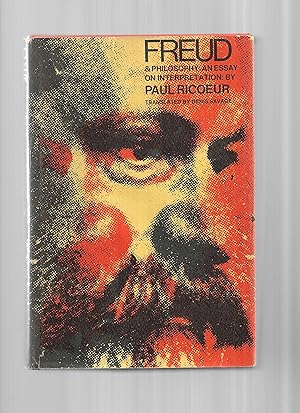terry lecture series (2 résultats)
CommentairesFiltres de recherche
Type d'article
- Tous les types de produits
- Livres (2)
- Magazines & Périodiques (Aucun autre résultat ne correspond à ces critères)
- Bandes dessinées (Aucun autre résultat ne correspond à ces critères)
- Partitions de musique (Aucun autre résultat ne correspond à ces critères)
- Art, Affiches et Gravures (Aucun autre résultat ne correspond à ces critères)
- Photographies (Aucun autre résultat ne correspond à ces critères)
- Cartes (Aucun autre résultat ne correspond à ces critères)
- Manuscrits & Papiers anciens (Aucun autre résultat ne correspond à ces critères)
Etat En savoir plus
- Neuf (Aucun autre résultat ne correspond à ces critères)
- Comme neuf, Très bon ou Bon (Aucun autre résultat ne correspond à ces critères)
- Assez bon ou satisfaisant (1)
- Moyen ou mauvais (Aucun autre résultat ne correspond à ces critères)
- Conformément à la description (1)
Reliure
- Toutes
- Couverture rigide (2)
- Couverture souple (Aucun autre résultat ne correspond à ces critères)
Particularités
- Ed. originale (2)
- Signé (Aucun autre résultat ne correspond à ces critères)
- Jaquette (2)
- Avec images (2)
- Sans impressions à la demande (2)
Langue (2)
Livraison gratuite
- Livraison gratuite à destination de Etats-Unis (Aucun autre résultat ne correspond à ces critères)
Pays
Evaluation du vendeur
-
Thinking in Circles: An essay on ring composition
Vendeur : Antiquariaat Fenix, Amsterdam, Pays-Bas
Edition originale
EUR 20
Autre deviseEUR 31,50 expédition depuis Pays-Bas vers Etats-UnisQuantité disponible : 1 disponible(s)
Ajouter au panierEtat : Good. Yale University Press: New Haven, 2007. Bound in boards with dustwrapper, ix-xv + 169pp. 1st printing. Notes. 14x21x1,7cm. In very good condition.
-
FREUD & PHILOSOPHY: An Essay On Interpretation By Paul Ricoeur. Translated By Denis Savage
Edité par New Haven CT. 1970. Yale Univ. Press / The Terry Lecture series., 1970
Vendeur : Chris Fessler, Bookseller, Howell, MI, Etats-Unis
Edition originale
EUR 43,55
Autre deviseEUR 4,19 expédition vers Etats-UnisQuantité disponible : 1 disponible(s)
Ajouter au panierorange full cloth hardcover 8vo. (octavo). dustwrapper in protective plastic book jacket cover. very fine cond. mint cond. looks new. like new. as new. binding square & tight. covers clean. edges clean. contents free of markings. dustwrapper in near fine cond. 1" tear on front top, couple of 1cm tears front bottom, a little rubbed at spine top & bottom, not price clipped. nice clean copy. no library markings, store stamps, stickers, bookplates, no names, inking, underlining, remainder markings etc~. first edition. first printing (same date on title & copyright page, no additional printings indicated). xv+573p. bibliographic footnotes throughout. index. psychology. philosophy. psychoanalysis. theology. biography. history of science. ~ If Paul Ricoeur is correct in seeing the various currents in contemporary philosophy all converging on the problem of a "grand philosophy of language," then the first sixty pages of this absorbing study of Freud may become the rallying point from which future work can begin. The first part of Freud and Philosophy, "Problematic," presents a profound and clear theory of signification, symbol, and interpretation. The second part, "A Reading of Freud," is required reading for anyone seriously interested in psychoanalysis. The third section includes a thoroughly audacious interpretation and criticism of Freud and a presentation of Ricoeur's own theory of symbol~particularly religious symbol~which places this study at the center of contemporary debate over the sense of myth. In this book are revealed Ricoeur the philosopher of language; Ricoeur the critic of Freud; and Ricoeur the theologian of religious symbol. The author is outstanding in all three roles, and the book that emerges has rare depth and complete relevance.



